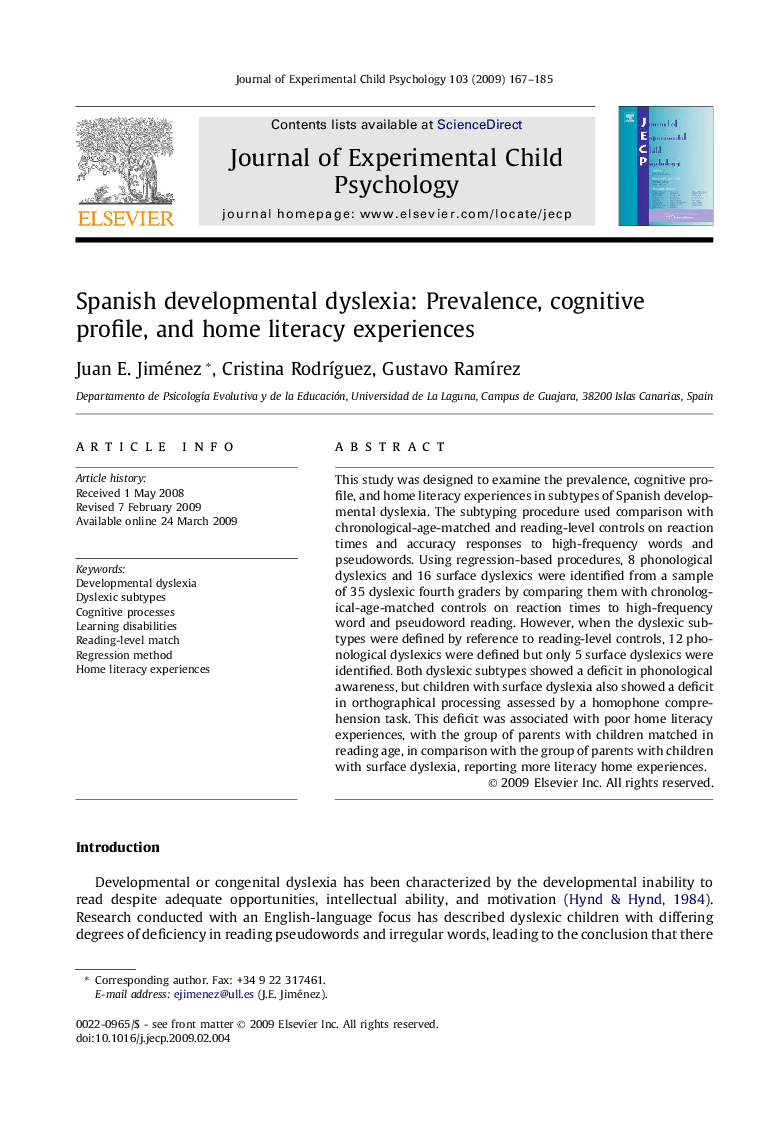ترجمه فارسی عنوان مقاله
نارساخوانی رشدی اسپانیایی: تجارب شیوع، مشخصات شناختی و سواد خانواده
عنوان انگلیسی
Spanish developmental dyslexia: Prevalence, cognitive profile, and home literacy experiences
| کد مقاله | سال انتشار | تعداد صفحات مقاله انگلیسی |
|---|---|---|
| 71050 | 2009 | 19 صفحه PDF |
منبع

Publisher : Elsevier - Science Direct (الزویر - ساینس دایرکت)
Journal : Journal of Experimental Child Psychology, Volume 103, Issue 2, June 2009, Pages 167–185
ترجمه کلمات کلیدی
نارساخوانی رشدی؛ زیرگروه نارساخوانی؛ فرایندهای شناختی؛ ناتوانی های یادگیری؛ بازی سطح خواندن؛ روش رگرسیون؛ سواد خانواده
کلمات کلیدی انگلیسی
Developmental dyslexia; Dyslexic subtypes; Cognitive processes; Learning disabilities; Reading-level match; Regression method; Home literacy experiences

